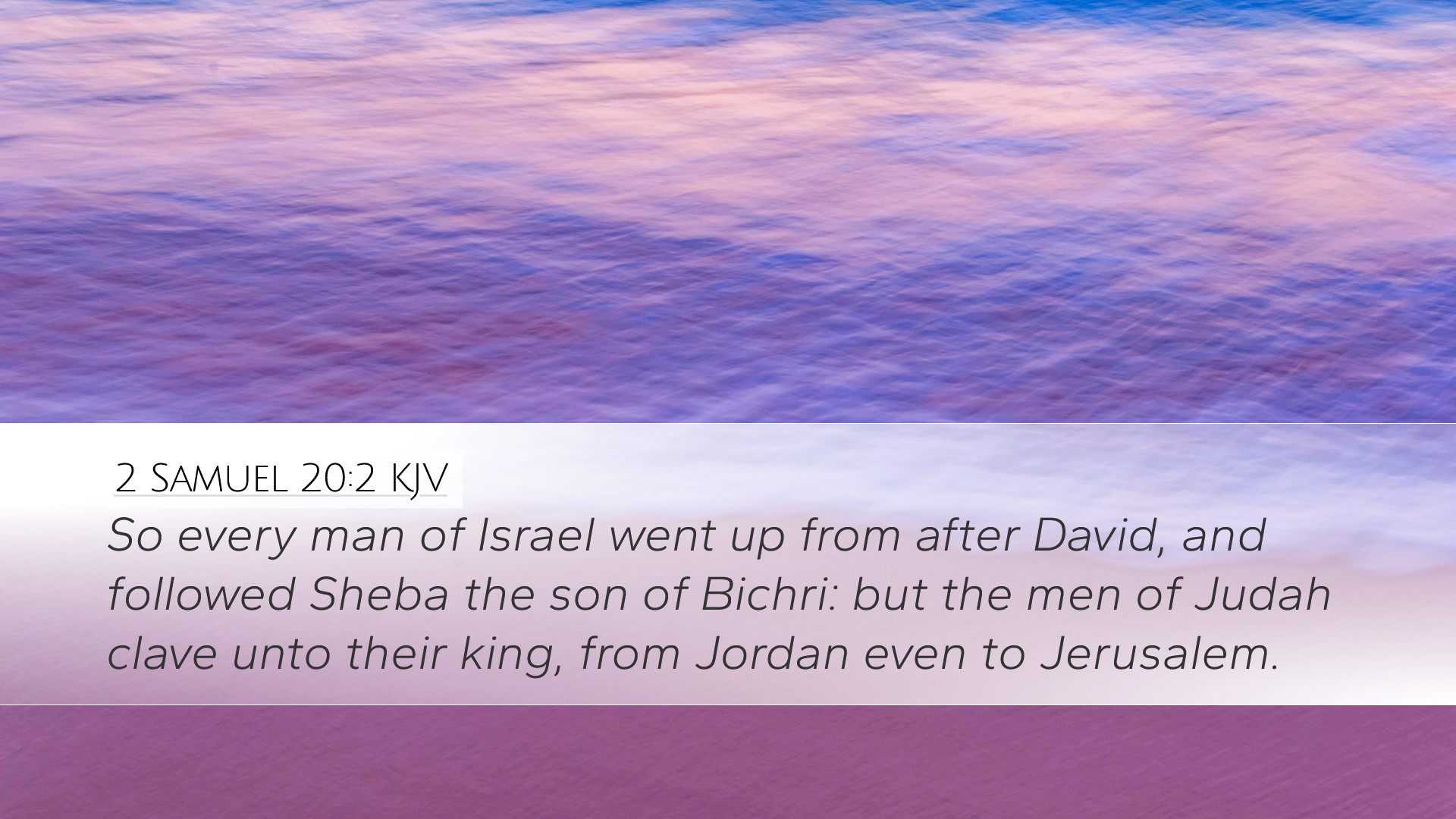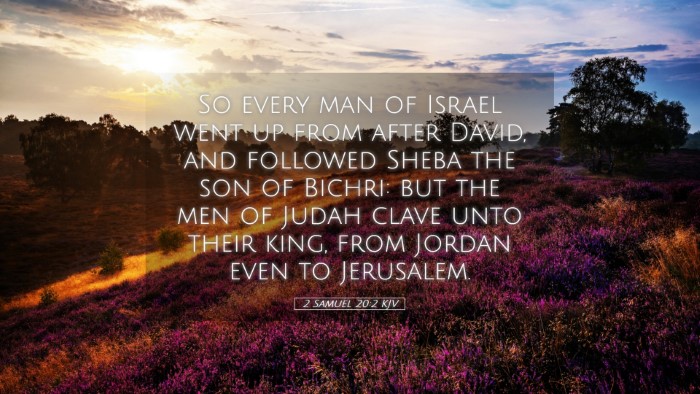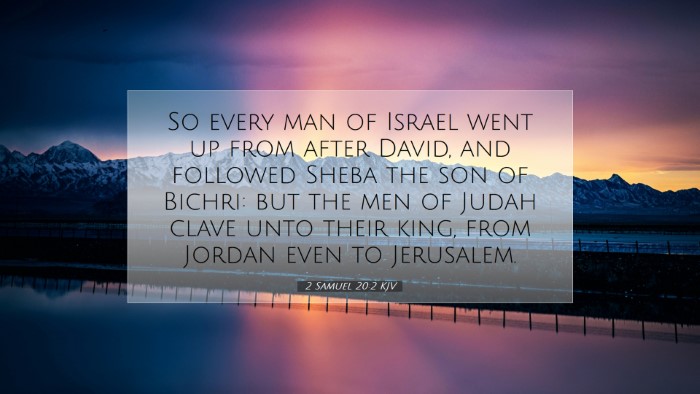Commentary on 2 Samuel 20:2
In 2 Samuel 20:2, we find a pivotal moment in the narrative of David's reign, as it highlights the political unrest within the kingdom of Israel. The verse states:
"So every man of Israel went up from after David, and followed Sheba the son of Bichri: but the men of Judah clave unto their king, from Jordan even to Jerusalem."
Context and Background
This event occurs after the rebellion of Absalom, which led to a significant loss of unity among the tribes of Israel. David’s return to power was not met with universal approval, and this verse illustrates the fractures that had developed within the nation.
Insights from Public Domain Commentaries
Matthew Henry
Matthew Henry observes that this verse reflects the shift of allegiance among the tribes of Israel following the tumultuous period of Absalom’s insurrection. He notes:
- Division of Allegiance: Henry points out the division that arose, highlighting how the allegiance of the Israelites shifted from King David to Sheba, indicating a lack of loyalty and instability among the northern tribes.
- Significance of Judah: The men of Judah remained steadfast in their loyalty to David. This highlights not only their support but perhaps also their role in maintaining a sense of legitimacy and authority for David's reign.
- Reflection on Leadership: The commentary reflects on the nature of leadership, wherein true followers may stand firm amidst chaos while others may be swayed by moments of political convenience.
Albert Barnes
Albert Barnes provides an analysis of the ramifications of this event on the broader narrative of Israel’s political dynamics. He offers several key insights:
- Theological Implications: Barnes emphasizes that the split between the tribes illustrates a spiritual and political disunity that would echo through Israel's history, suggesting that the heart’s allegiance ultimately shapes national identity.
- Sheba’s Role: He also discusses the character of Sheba, noting that his rise symbolizes the ongoing struggle for power after Absalom’s rebellion, illustrating the challenges that David faced in uniting a fractured nation.
- Impacts on David's Reign: The commentary suggests that such events lead David to face significant challenges in governance and in restoring order and unity amongst the tribes.
Adam Clarke
Adam Clarke delves deeper into the motivations of the Israelites as they align with Sheba. His observations include:
- Political Dynamics: Clarke highlights that the choice of the men of Israel to follow Sheba signifies the volatile nature of their support for David. There was no clear understanding of its foundational loyalty, especially evident in the factionalism prevalent at the time.
- The Role of Jordan: He notes the geographical significance of the journey “from Jordan even to Jerusalem,” indicating how physical locations were reflective of political and spiritual allegiances.
- Cultural Reflections: The commentary emphasizes that events like these serve as reminders of the cultural and historical factors that influence loyalty and governance in ancient landscapes.
Conclusions and Applications
The events surrounding 2 Samuel 20:2 provide profound insights applicable in various contexts:
- Understanding Division: Recognizing the political and personal divisions in communities, leaders must seek to unite rather than divide, fostering loyalty through genuine engagement.
- Leadership amid Chaos: The narrative teaches that true leadership is demonstrated in times of crisis. Leaders, like David, must navigate through disloyalty while upholding righteousness and integrity.
- The Importance of Spiritual Unity: Pastors and spiritual leaders should emphasize the necessity of spiritual unity among believers, drawing lessons from Israel’s fractured state to encourage communal harmony.
Final Reflection
2 Samuel 20:2 serves not only as a historical account but as a rich source of theological reflection regarding loyalty, leadership, and the complexities of human relationships in the face of shifting allegiances. For pastors and theologians alike, this passage invites a closer examination of the factors that contribute to human division and the essential call for unity under God’s sovereignty.


